- Availability: Out Of Stock
- Made & Mkt by: P-TAL - Project Virasat
- Product Code: 1523-VP22-DHS-001-12
- Weight: 700.00g
- Dimensions: 25.00cm x 17.00cm x 15.00cm
The typical dispatch time is 2-3 days; however, in special cases, it may take longer. Please refer to the product details section for specific timelines. Once dispatched, we will share the tracking details with you.
For returns, you can file a request within 24 hours of receiving the product. If the package is damaged, please make a video while unboxing and share images of the damaged item along with your return request.
9328006304 ( WhatsApp )
“Legacy is not leaving something for people; it is leaving something in people”
As you walk the streets of Jandiala Guru, you are welcomed by the 'thak thak' sound of hammering of utensils and as you walk further in, you see the faces of men: men trying desperately to hold on to their art long forgotten, men crippled by the inability to feed their family. As generation after generation, the number of people to carry the legacy forward falls, the solitary old man, having lost the ability to listen, sits back saddened as the culture of his past fades away into a future that looks nothing but gloomy.
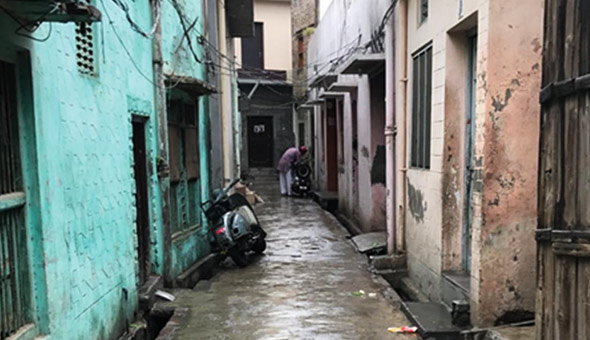
The Thatheras of Jandiala Guru are a community of skilled craftsmen who specialize in the traditional technique of hammering brass and copper sheets into traditional utensils. This crafts colony of Jandiala Guru was established during the reign of Maharaja Ranjit Singh (1883) the great 19th century Sikh Monarch, who encouraged skilled crafters from Kashmir to settle in the heart of his kingdom in Punjab.
Jandiala Guru became an area of repute dueto the skill of the Thatheras. The craft of the Thatheras of Jandiala Guru of Punjab has got the distinction of being inscribed on the Representatives List of the Intangible Culture Heritage, UNESCO in November 2014. The metals used by the Thatheras-copper, brass and certain alloys- are believed to be beneficial for health. 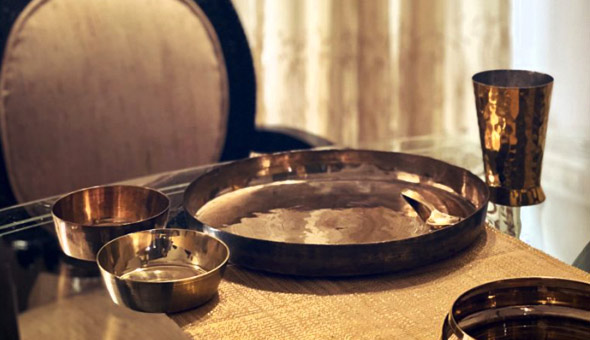
The process begins with procuring cooled cakes of metal that are flattened into thin plates and then hammered into curved shapes,creating the required small bowls, rimmed plates, to larger pots for water and milk, huge cooking utensils and other artifacts. Utensils are manually finished by polishing with traditional materials such as sand and tamarind juice. Designs are made by skillfully hammering a series of tiny dents into the heated metal.
The process of manufacturing is transmitted orally from father to son. Metalwork is not simply a form of livelihood for Thatheras, but it defines their family and kinship structure, work ethic and status within the social hierarchy of the town.Over time these artisans, owing to several problems, had started to lose their charm and had become naturally deprived and poverty stricken. They struggled with financial difficulties that sprung out of the exploitative nature of Kasariyas; middlemen who ill-treated the Thatheras by making untimely and inadequate payments to them.
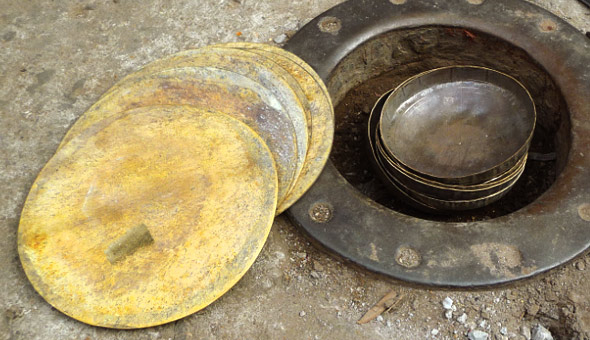
Low and irregular wages made it extremely tough for them to sustain livelihood in this occupation. Poor working conditions were revealing detrimental effects to their physical and mental wellbeing. Lastly, the inaccessibility to markets hindered their ability to earn revenues contributing to low financial status in society. Modern times havealso witnessed a growth in the use of machinery for the production of utensils. With such mechanisation, machine-made goods became easier to produce and therefore cheaper in price, thereby adding to the competition.
In addition to this, steel and aluminium utensils had started to sweep the markets owing to greater demand thatemerged from low prices and easier maintenance. The community of the Thatheras had faced oppression by middlemen, competition by steel and aluminium utensils and sharp decline in demand for their products over the years, thus reducing the number of families involved in the occupation from 500 to 30.
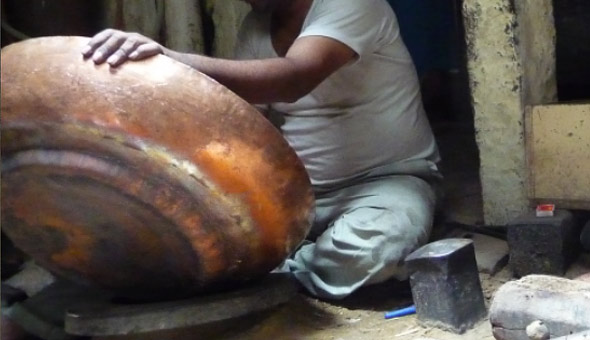
Enactus SRCC, after coming across this community, researched extensively on the project. Understanding the needto create demand for these Thatheras in order to sustain the art that also finds recognition in the UNESCO List of Intangible Cultural Heritage; we started looking at avenues where we could sell our products. Project Virasat aims to solve the problems faced by the Thatheras through a three-fold approach. First, reviving the demand for their products by combining traditional designs with contemporary tastes.
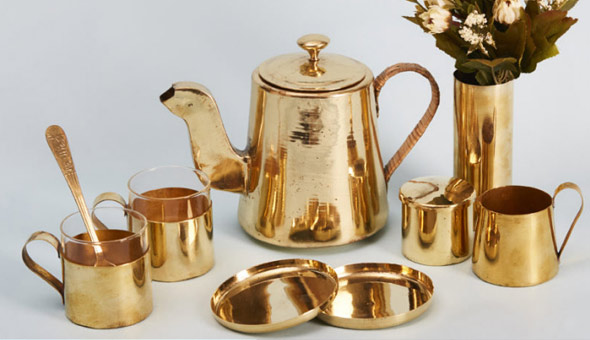
Second, increasing its customer base by establishing market linkages through retail outlets and a strong e-commerce presence. Lastly, increasing their standard of living by Institutionalisation of the Thatheras through the formation of a Self Help Group (SHG) and legalizing their identity as craftsmen and businessmen.
| Craftsmen | |
| Made by | Artisans working with Enactus SRCC (Project Virasat). |
| Returns and Exchange | |
| Note | ♦ The items in this category are non refundable. ♦ The products in this category is handmade. ♦ The product is only eligible for a refund in the case of damage or defect. |
| Material | |
| Made of | Brass & Copper - Mixture of plain & hammered |
| Instruction | |
| About Sizes | 17.78 x 12.7 cms. | Weight - 120 |
| Note | ♦ Imperfections and variations in the product cannot be termed as defects, as these are intrinsic to the handmade process. ♦ These might slightly differ from as seen on digital screen. |
| Care | In order to maintain the shine and spark of the products one should wash the utensil with Pitambari or brasso powder, readily available in the nearest general store. One can also use lemon water, tamarind or vinegar. |
| Restrictions | |
| COD - Option | Not Available |

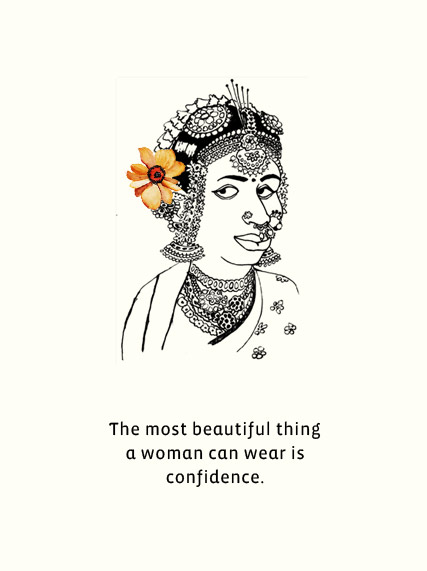

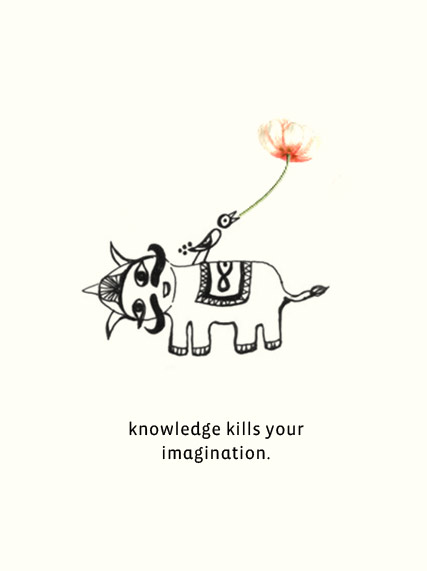

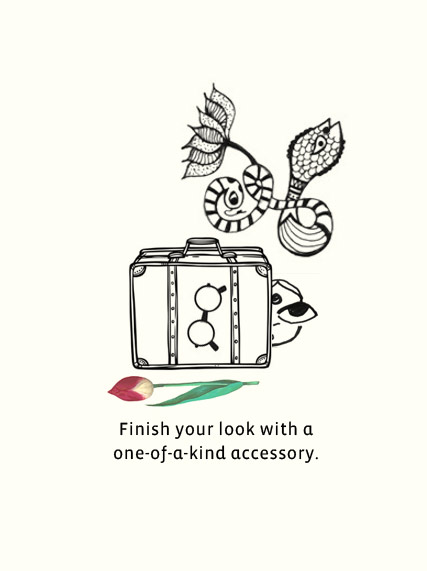
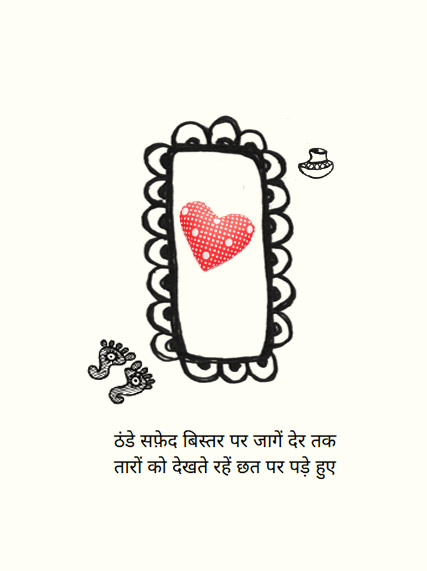

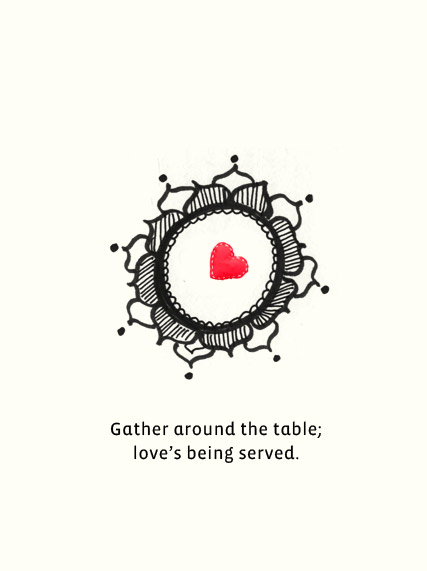

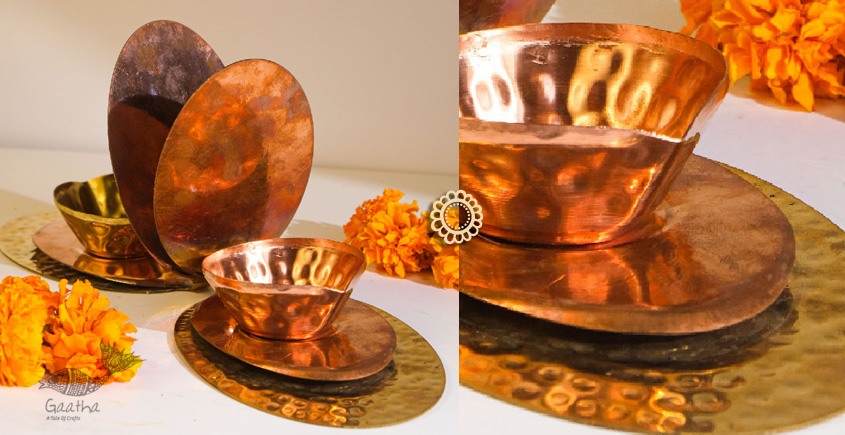
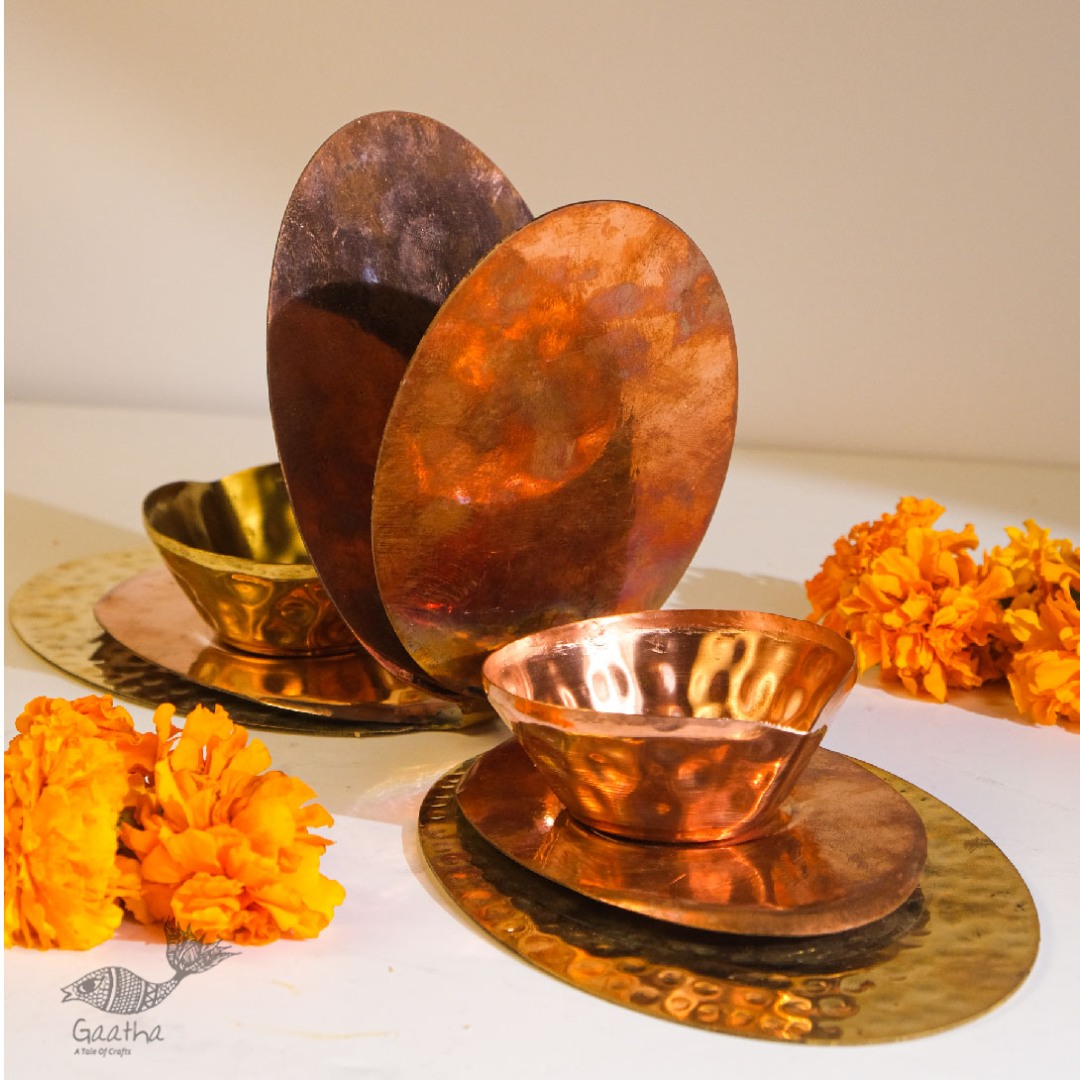



-225x150w.jpg)
-225x150w.jpg)
-225x150w.jpg)
-225x150w.jpg)
-225x150w.jpg)
-225x150w.jpg)
-225x150w.jpg)
-225x150w.jpg)
-225x150w.jpg)
-225x150w.jpg)
-225x150w.jpg)
-225x150w.jpg)
-225x150w.jpg)
-225x150w.jpg)
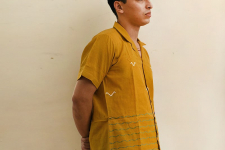
-225x150w.jpg)
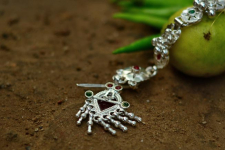
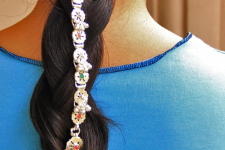
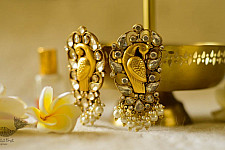
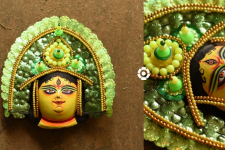
-225x150.jpg)
-225x150w.jpg)
-225x150w.jpg)
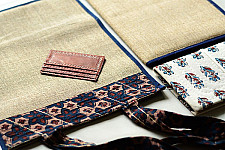
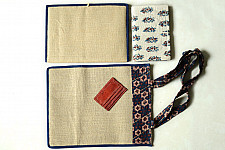
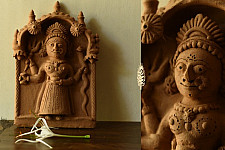
-225x150.jpg)
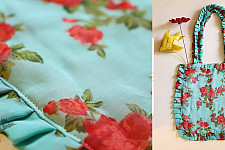
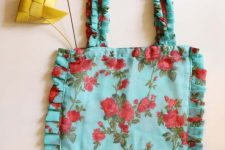
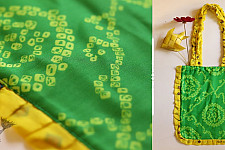
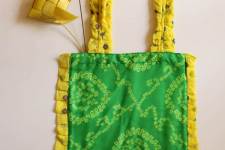
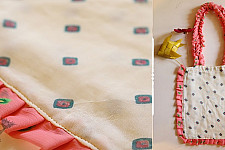
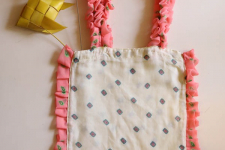
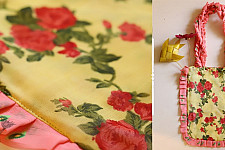
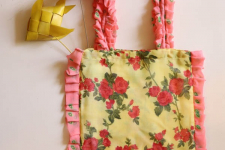
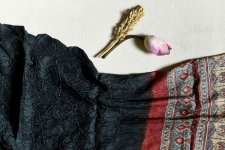
-225x150w.jpg)
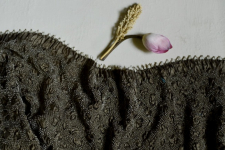
-225x150w.jpg)
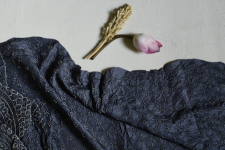
-225x150w.jpg)
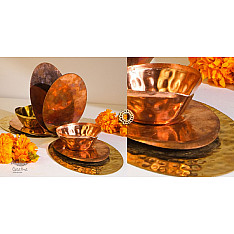
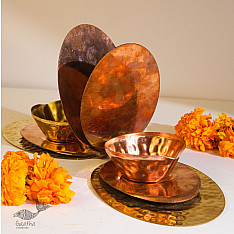
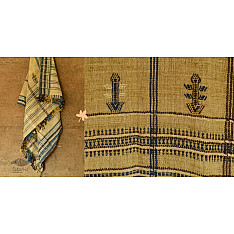
-234x234w.jpg)